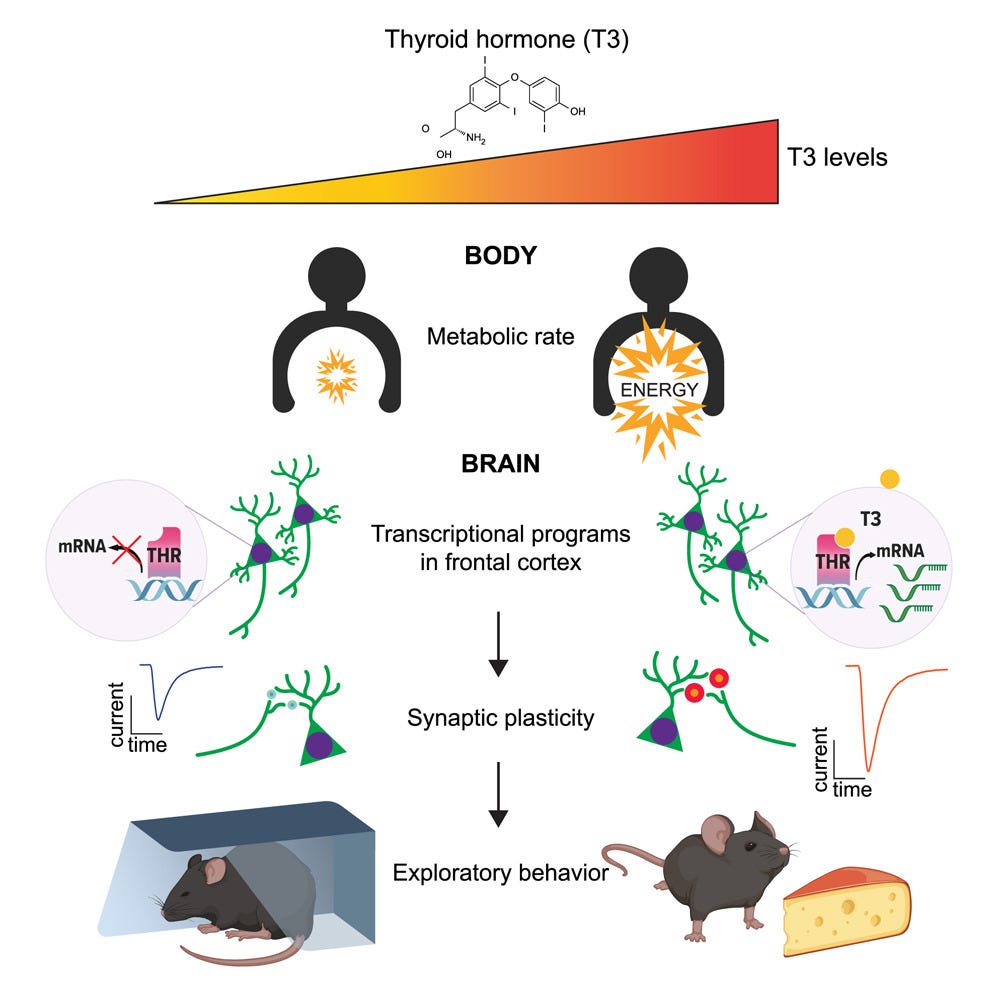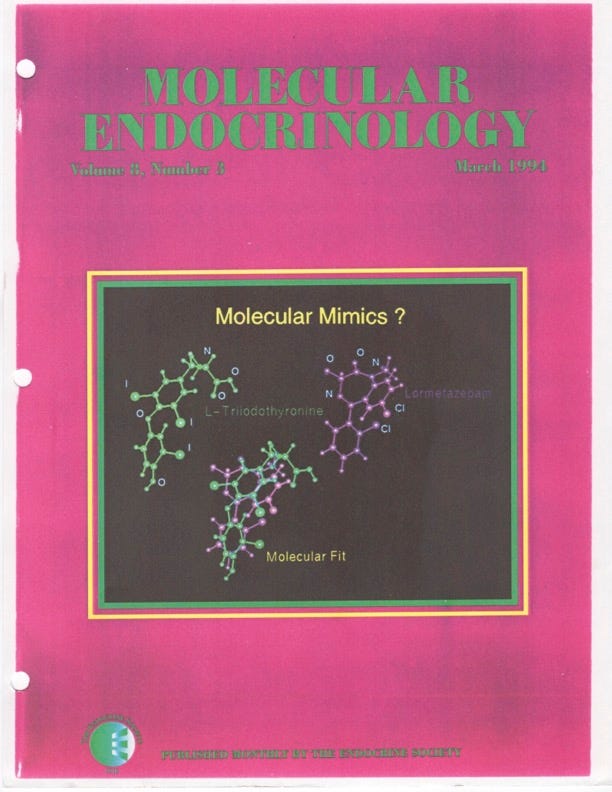Thyroid hormone induces exploratory behavior in the adult brain
T3 directed CNS plasticity
A recent paper reports that triiodothyronine (T3), a metabolite of thyroxine (T4) can stimulate the growth of cortical neurons in mammals.
They dosed mice with IP injections of T3, then tested their exploratory behavior. They took brain tissue and tested it for gene activity related to synaptogenesis. And they live recorded in situ, [from L2/3 pyramidal neurons in brain slices] increased electrical activity.
T3 directly activates cell-type-specific transcriptional programs in adult cortex
T3-regulated gene programs (TRGPs) alter excitatory and inhibitory synaptic transmission
TRGPs in frontal cortex drive changes in exploratory behaviors and decision-making
TRGPs in cortex act to coordinate exploratory behaviors with whole-body metabolism
Animals adapt to environmental conditions by modifying the function of their internal organs, including the brain. To be adaptive, alterations in behavior must be coordinated with the functional state of organs throughout the body. Here, we find that thyroid hormone — a regulator of metabolism in many peripheral organs — directly activates cell-type-specific transcriptional programs in the frontal cortex of adult male mice. These programs are enriched for axon-guidance genes in glutamatergic projection neurons, synaptic regulatory genes in both astrocytes and neurons, and pro-myelination factors in oligodendrocytes, suggesting widespread plasticity of cortical circuits. Indeed, whole-cell electrophysiology revealed that thyroid hormone alters excitatory and inhibitory synaptic transmission, an effect that requires thyroid hormone-induced gene regulatory programs in presynaptic neurons. Furthermore, thyroid hormone action in the frontal cortex regulates innate exploratory behaviors and causally promotes exploratory decision-making. Thus, thyroid hormone acts directly on the cerebral cortex in males to coordinate exploratory behaviors with whole-body metabolic state. - D Hochbaum, et al.
These researchers ignore the contribution of the membrane iodothyronine transporter in their hypotheses for mechanism of action, but that does not change the fact that an altered thyroid hormone state induces new neuronal growth and activity in the adult male mouse. [Females did not respond significantly. Perhaps because estrone sulfate can compete at the membrane thyroid hormone transporter site?] It does provides more understanding for the basis of cognitive decline that associates with the low hormone hypothyroid state - myxedema coma being the extreme.
I reviewed the effects of thyroid hormone metabolism on the CNS in my 1993 publication:
Other Thyroid Hormone related publications:
I have published several other papers on thyroid hormone metabolism and homeostasis. In particular, I characterized the membrane iodothyronine transporter. Please do review:
REFERENCES
D Hochbaum, et al. Thyroid hormone remodels cortex to coordinate body-wide metabolism and exploration, Cell (2024). DOI: 10.1016/j.cell.2024.07.041. www.cell.com/cell/fulltext/S0092-8674(24)00835-3




